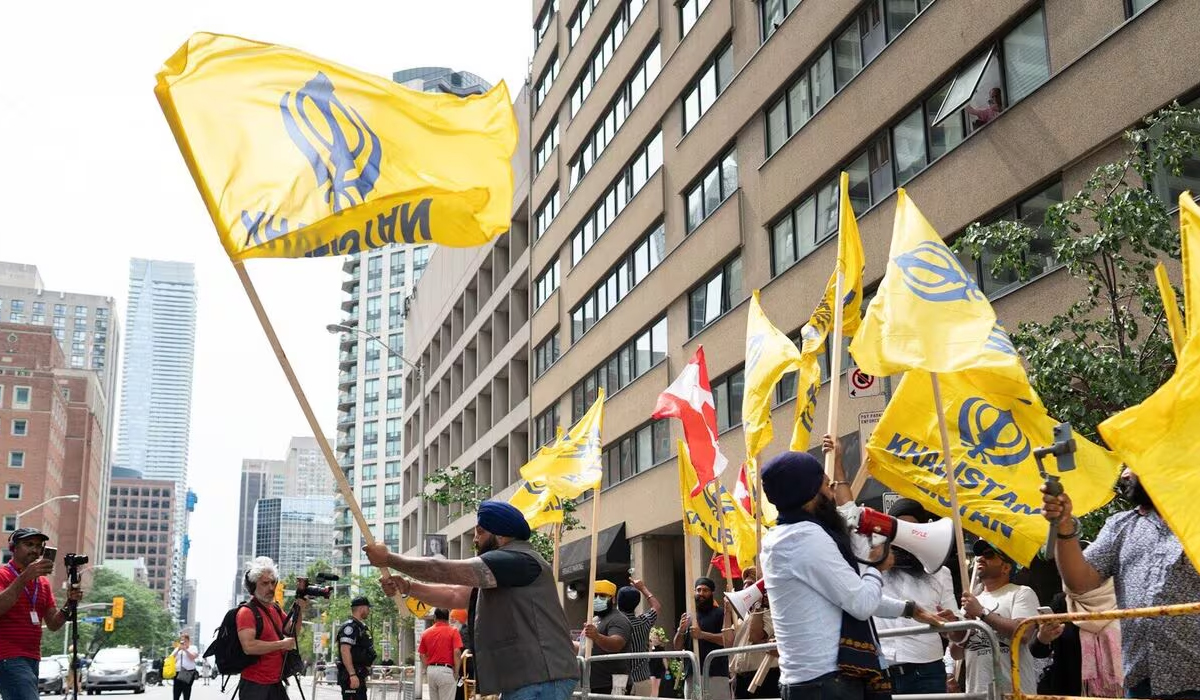
In the wake of Canada’s 2025 federal election, a seismic shift has reshaped the nation’s political landscape, with significant implications for the influence of pro-Khalistani elements within the Liberal Party. The electoral drubbing of the New Democratic Party (NDP) and the ascent of Mark Carney as Prime Minister signal a potential turning point, loosening the grip of Khalistani advocacy that has long stirred tensions in Canadian politics and strained ties with India. For years, the Khalistani m o v e m e n t — a s e p a r a t i s t campaign for an independent Sikh state in India—has held a disproportionate sway in Canadian politics, particularly within the Sikh community, which constitutes about 2% of the population but wields significant influence in key ridings.
Under former Prime Minister Justin Trudeau, the Liberal Party faced accusations of pandering to Khalistani supporters to secure votes, a strategy critics argued was amplified by the party’s reliance on the NDP, led by Jagmeet Singh, to sustain its minority government. Singh, often associated with pro Khalistani sympathies, became a lightning rod for controversy, with his party’s policies and alliances seen as emboldening separatist rhetoric. The 2025 election, however, marked a dramatic reversal. The NDP suffered a catastrophic defeat, plummeting from 24 seats to just seven, losing offcial party status. Singh himself was ousted from his Burnaby Central riding and announced his resignation as NDP leader.
This collapse has been hailed by observers, including Indian media and former diplomats, as a “massive blow” to the Khalistani lobby. With the NDP’s influence curtailed, the Liberal Party, now holding a robust minority government of approximately 168 seats under Carney, is less beholden to the political pressures that once necessitated appeasing pro-Khalistani factions. Carney’s leadership offers a fresh opportunity to recalibrate Canada’s approach.
Unlike Trudeau, whose tenure was marred by diplomatic spats with India—most notably the 2023 allegations of Indian involvement in the killing of Hardeep Singh Nijjar—Carney has signalled a desire to rebuild Canada-India relations. This shift is critical at a time when economic imperatives, including navigating trade threats from a resurgent U.S. administration under Donald Trump, demand stronger international partnerships. A Liberal government unencumbered by NDP reliance can prioritize broader bilateral ties over the narrow interests of a vocal minority.
The historical context underscores the significance of this moment. Khalistani influence has been amplified by Canada’s political system, where tight-knit communities can sway candidate nominations and where charities, including some Sikh gurdwaras, fund campaigns. Incidents like the 2021 ousting of MP Ramesh Sangha for criticizing pro-Khalistani elements and the 2025 revocation of Indo-Canadian MP Chandra Arya’s candidacy, linked to his anti-Khalistani stance, exposed the Liberal Party’s internal struggles.
Yet, the 2025 election suggests that this influence failed to resonate with the broader electorate, as voters prioritized pressing issues like the economy over niche separatist agendas. Still, the Khalistani movement’s influence, while weakened, is not eradicated. The Liberal Party’s “big tent” approach means it will continue engaging with diverse communities, including those with pro-Khalistani sentiments. Carney’s commitment to Liberal values like “solidarity” and “reconciliation” may involve addressing Sikh community concerns, which could inadvertently provide a platform for separatist voices.
Moreover, the movement’s structural roots in Canada—through community organizations and political activism—persist, requiring careful navigation to avoid alienating moderate Sikhs while addressing India’s concerns about extremism. The path forward lies in Carney’s ability to balance these dynamics. A tougher stance on separatist activities, coupled with policies that strengthen Canada-India ties, could signal a decisive break from the past. Former Indian diplomats like KP Fabian and Ajay Bisaria have expressed cautious optimism, noting that a Liberal government free from NDP dependence could send a strong message against extremism while fostering mutual economic and strategic interests. Canada stands at a crossroads. The 2025 election has loosened the Khalistani grip on the Liberal Party, offering a chance to redefine its priorities. By focusing on unity and international cooperation, Carney can steer Canada toward a future where domestic politics no longer amplify divisive separatist agendas. The world, particularly India, is watching closely to see whether this opportunity will be seized.
